Recent Blog Posts
Why Choose an Epoxy Floor Coating with a Non-Skid Additive?
 Perhaps you have made the decision to have epoxy floor coating on your basement or garage floor and are now wondering whether you should add a have a non-skid additive to the epoxy. There are so many good reasons to apply epoxy floor coatings, not just in basements and garages but also around pools, in workout rooms, in family rooms, and for a wide range of commercial applications. When used in an exterior application, like a carport, garage that is usually open, or around a pool, any moisture, whether from ice, snow, rain, or pool splashing, can cause slippery surfaces.
Perhaps you have made the decision to have epoxy floor coating on your basement or garage floor and are now wondering whether you should add a have a non-skid additive to the epoxy. There are so many good reasons to apply epoxy floor coatings, not just in basements and garages but also around pools, in workout rooms, in family rooms, and for a wide range of commercial applications. When used in an exterior application, like a carport, garage that is usually open, or around a pool, any moisture, whether from ice, snow, rain, or pool splashing, can cause slippery surfaces.
Even if your garage door is almost always closed - except when your car is going in and out - the concrete with epoxy floor coating can get slippery from normal spills or a small oil leak. When using epoxy floor coating in a gym, it is even more important that the surface is definitely anti-slip. A non-skid surface is a good precaution to prevent slip-and-fall accidents in indoor areas with very high traffic.
Benefits of Epoxy Floor Coating for Small Hobby Farms
 If your family owns a few acres devoted to growing food and raising animals, you might be pleasantly surprised to find out there is a floor coating out there that can handle all your specific flooring needs. While most of us think of grass and dirt rather than flooring when we think of a small hobby farm, durable floors that offer superior cleanliness and safety are a must.
If your family owns a few acres devoted to growing food and raising animals, you might be pleasantly surprised to find out there is a floor coating out there that can handle all your specific flooring needs. While most of us think of grass and dirt rather than flooring when we think of a small hobby farm, durable floors that offer superior cleanliness and safety are a must.
From home greenhouses to animal feeding rooms and milking areas, epoxy floor coatings will be an exceptional addition to your hobby farm. Epoxy flooring is usually installed over existing concrete floors and is often seen in garages, basements, and family rooms. For those considering expanded uses for epoxy floor coatings, it is time to speak to a White Hall, MD epoxy flooring company from Prestige Floor Coating.
Can Epoxy Floor Coating Boost Your Home’s Value?
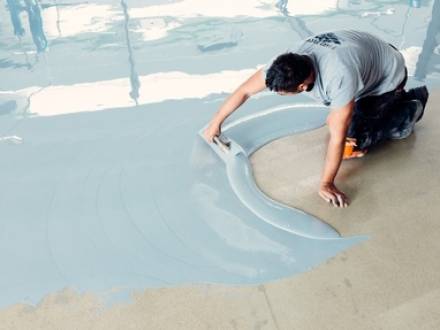 If you are considering upgrading your home to increase its value in anticipation of a future sale, few upgrades can accomplish this as quickly and easily—while remaining affordable—as epoxy flooring. Through the use of epoxy floor coating, a home can be transformed and its value increased in as little as two to three days.
If you are considering upgrading your home to increase its value in anticipation of a future sale, few upgrades can accomplish this as quickly and easily—while remaining affordable—as epoxy flooring. Through the use of epoxy floor coating, a home can be transformed and its value increased in as little as two to three days.
Epoxy floor coatings may not immediately come to mind when you look at ways to increase the value of your home, yet they are one of the most desirable flooring products thanks to their strength, versatility, and beauty. Epoxy flooring applied in a garage can increase the resale value of a home by as much as 5 percent. Epoxy flooring is generally installed over existing concrete floors and it is often used in basements, family rooms, and garages.
The Best Reasons to Use Epoxy Floor Coating in Your Basement
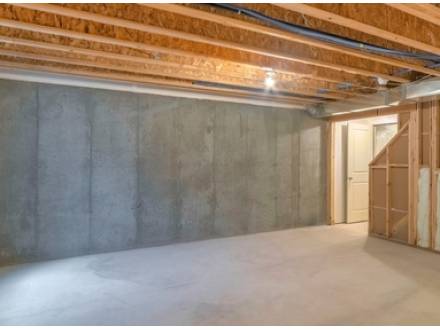 More and more people are turning their basements into usable spaces, whether a family room, a sports room, an exercise room, or a craft room. While basements, like attics, once simply held everything that would not fit in the rest of the house – and usually not very neatly – today, basements are usable spaces. As such, you may be wondering what to do to the floor that is both visually pleasing and durable.
More and more people are turning their basements into usable spaces, whether a family room, a sports room, an exercise room, or a craft room. While basements, like attics, once simply held everything that would not fit in the rest of the house – and usually not very neatly – today, basements are usable spaces. As such, you may be wondering what to do to the floor that is both visually pleasing and durable.
Regardless of how you plan to use your home’s basement, an epoxy floor coating can make it warm and inviting. Whether you are considering an epoxy floor for your basement, garage, playroom, or other area, Epoxy floor coatings can transform a cement floor.
When you choose a Bel Air, MD epoxy flooring company from Prestige Floor Coating, our highly experienced floor coating experts can answer all your questions and help you make a decision regarding your flooring. Below are just a few of the many reasons to choose epoxy flooring for your basement or other area.
What Are the Most Common Misconceptions About Epoxy Flooring?
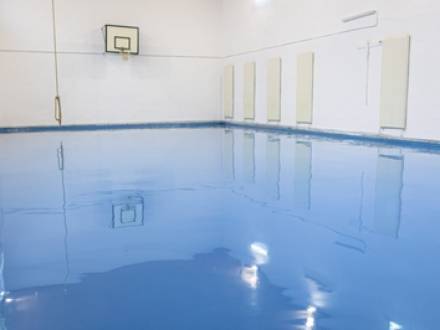 You may be considering an epoxy floor for your garage, basement, playroom, or other home area. Epoxy floor coatings can totally transform a cement floor, especially one that has stained and cracked over the years. When you choose epoxy for your floor, you are rewarded with a beautiful floor that requires minimum maintenance and will last for many years.
You may be considering an epoxy floor for your garage, basement, playroom, or other home area. Epoxy floor coatings can totally transform a cement floor, especially one that has stained and cracked over the years. When you choose epoxy for your floor, you are rewarded with a beautiful floor that requires minimum maintenance and will last for many years.
Some people may avoid epoxy flooring because they have heard things about epoxy that are usually 100 percent myth or misconception. When you choose an Aberdeen, MD epoxy flooring company from Prestige Floor Coating, we can look at your proposed area, answer all your questions, and help you make a well-informed decision regarding your epoxy flooring choice. Below are some of the most common myths and misconceptions regarding epoxy flooring.
Epoxy Flooring vs. Seamless Resin Flooring
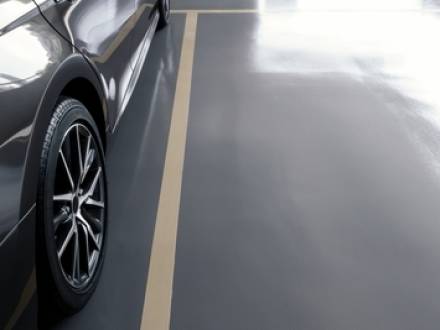 Although epoxy flooring is a type of resin flooring, there are some important differences between the two. Both types of flooring are sometimes known as plastic adhesives due to their ability to bond to plastic, as well as to glass, metal, and concrete. Both epoxy and resin floorings are tough, chemical and heat resistant, and can endure impacts better than most types of floorings.
Although epoxy flooring is a type of resin flooring, there are some important differences between the two. Both types of flooring are sometimes known as plastic adhesives due to their ability to bond to plastic, as well as to glass, metal, and concrete. Both epoxy and resin floorings are tough, chemical and heat resistant, and can endure impacts better than most types of floorings.
While epoxy and resin are often used in industrial applications like warehouses and factories, more and more often, epoxy flooring is being used in residential applications such as garages and basements. Both types of flooring have non-porous surfaces, which protect against wear and tear while also keeping the flooring safe from liquids and chemicals.
If you choose epoxy flooring, you can be sure it will withstand the use it receives while also being safe and attractive. Choosing a Forest Hill, MD epoxy company from Prestige Floor Coating for your epoxy flooring needs ensures your residential, commercial, or industrial floor will be beautiful and durable for many years to come.
How Epoxy Floor Coatings Excel in Brewery Applications
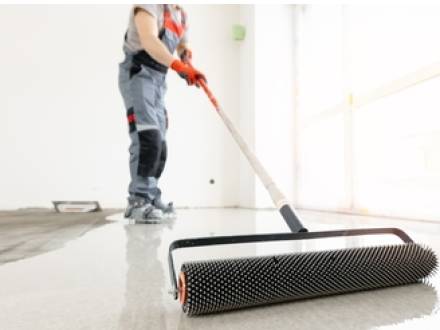 Many companies and individuals will choose flooring based solely on its appearance. Commercial food and beverage businesses rarely have that luxury. While brewery owners certainly care about the appearance of their flooring, it must also meet all necessary rules and regulations. Businesses like breweries that involve large, bulky equipment, significant foot traffic, constant spills, and hauling huge kegs of beer across the floors should definitely consider epoxy flooring.
Many companies and individuals will choose flooring based solely on its appearance. Commercial food and beverage businesses rarely have that luxury. While brewery owners certainly care about the appearance of their flooring, it must also meet all necessary rules and regulations. Businesses like breweries that involve large, bulky equipment, significant foot traffic, constant spills, and hauling huge kegs of beer across the floors should definitely consider epoxy flooring.
If your brewery business is the culmination of years of work and saving, it is essential that elements like flooring will withstand the use they will receive while remaining safe and attractive. Further, a commercial floor that falls short of safety standards could potentially expose a business to legal action; choosing a flooring company like Prestige Floor Coating ensures your business will thrive in all the ways you imagined.
3 Safety Features to Include in a Pool Deck
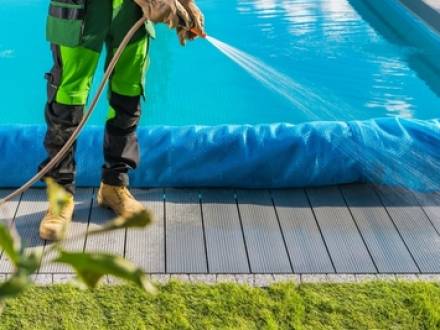 A pool deck is an integral part of exterior decor. The right deck can be an inviting place for friends and family to gather, relax, enjoy the outdoors, and share fun memories. It can enhance your home and serve as an accent for your outdoor space.
A pool deck is an integral part of exterior decor. The right deck can be an inviting place for friends and family to gather, relax, enjoy the outdoors, and share fun memories. It can enhance your home and serve as an accent for your outdoor space.
But before exploring the aesthetics and functionality of a pool deck, it is important to first consider its safety. A beautiful deck that falls short of safety standards can be a menace to your loved ones and expose you to adverse legal action. As we explore three must-have safety features for pool decks, keep in mind that choosing a flooring company like Prestige Floor Coating is a great way to solve any safety challenges.
Slip Resistance
As the name suggests, a pool deck is almost certain to collect moisture from splashes and foot traffic. People are likely to slip and fall on a deck that is not made from proper materials or the right textured finish. To prevent unnecessary injuries, a pool deck should have a surface that provides sufficient traction to avoid slip-and-falls.
How is Epoxy Floor Coating Different Than Rubber Flooring?
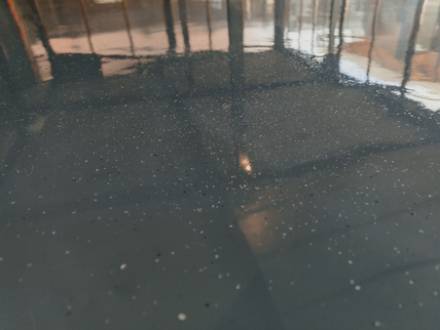 So - You are ready to choose new flooring material for your basement and garage. A friend has mentioned rubber flooring, but you love the shine and array of choices of epoxy floor coatings. Although the rubber flooring does seem to be budget-friendly and relatively versatile, you just cannot seem to make up your mind! Fortunately, our flooring professionals have some information we hope will help you make your decision.
So - You are ready to choose new flooring material for your basement and garage. A friend has mentioned rubber flooring, but you love the shine and array of choices of epoxy floor coatings. Although the rubber flooring does seem to be budget-friendly and relatively versatile, you just cannot seem to make up your mind! Fortunately, our flooring professionals have some information we hope will help you make your decision.
First, consider how you will use the space. Does your garage actually have vehicles parked inside, or, like most people’s garages, is it largely used for storage and projects? If you are considering your basement, is it primarily a play area for younger children, a hang-out place for teens, a space where you enjoy crafting, or a total "man cave"? The way your space will be used is important when considering flooring. Speaking to an experienced Maryland epoxy floor professional from Prestige Floor Coating can help you determine if an epoxy floor is right for you.
5 Reasons Epoxy Floor Coating is Superior to Concrete
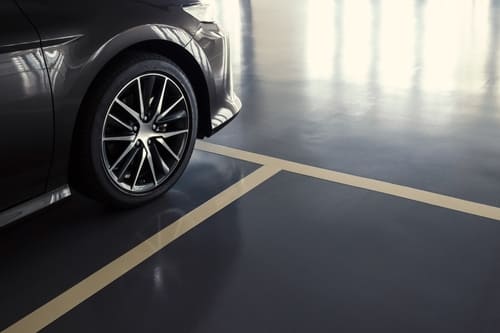 You may be trying to decide whether you want an epoxy floor coating or a polished concrete floor for your garage or basement. If so, there are several factors you should take into consideration. First, think about what is important to you. Do you want a low-maintenance floor? One that is durable and will last for years? How about style and visual appeal? Maybe all of these factors are important to you.
You may be trying to decide whether you want an epoxy floor coating or a polished concrete floor for your garage or basement. If so, there are several factors you should take into consideration. First, think about what is important to you. Do you want a low-maintenance floor? One that is durable and will last for years? How about style and visual appeal? Maybe all of these factors are important to you.
Consider your budget and how the space will be used. While budget is important, epoxy floor coating is affordable and superior to polished concrete in many ways. Speaking to a knowledgeable Maryland epoxy floor professional from Prestige Floor Coating can help you make the right decision for your space.
Why Choose Epoxy Floor Coating?
While there are a multitude of reasons to choose epoxy floor coating, below are five great reasons to choose epoxy floor coating over polished concrete:




